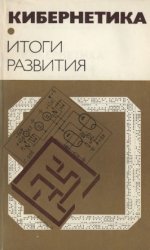- Добавил: polyanskiy
- Дата: 14-05-2025, 11:13
- Комментариев: 0

Автор: Е. Ф. Рябчиков
Название: Самоходная модель автогрейдера. Приложение №2 к журналу Юный техник
Издательство: М:, Детский мир
Год: 1962
Страниц: 6
Формат: DJVU, PDF
Размер: 13 МБ
В брошюре дано описание модели автогрейдера. Грейдер - это машина, выполняющая различные виды земляных работ. В равнинной местности он профилирует земляное полотно, то есть придает будущей дороге в поперечном сечении определенную форму; устраивает сбоку дороги канавы для отвода дождевой воды; возводит насыпи высотой до одного метра; делает террасы на косогорах для посадки растений и деревьев; планирует местность, сравнивая выступы и засыпая ямы; расчищает проезжие дороги от снежных заносов.









